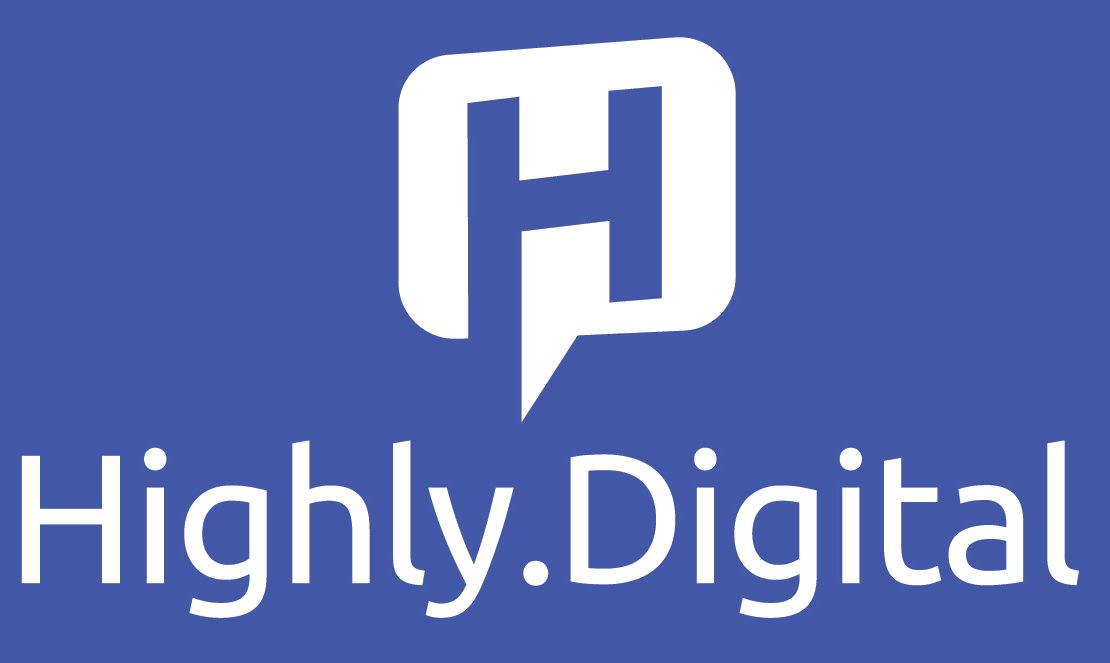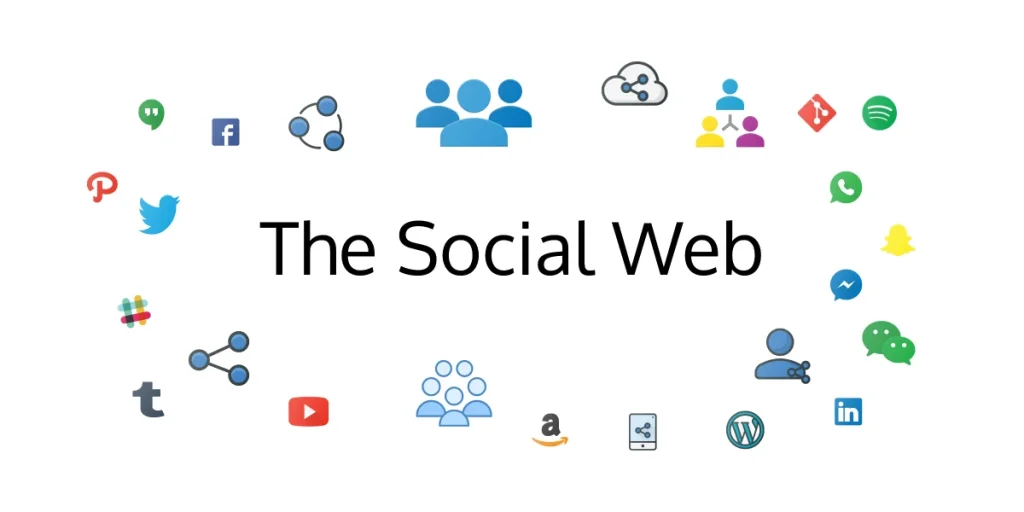The internet has proven to be a valuable communications tool for us all. Humans are evolving in line with the internet and the internet is evolving to meet our wants and needs. I believe technology compliments human behaviour. What can we learn from how we took to the social web?
What is the Social Web?
“The Social Web is a set of relationships that link together people over the Web” – W3C.
To fully understand the social web, we need to take a bit of a history lesson. The internet came first and is the hardware that physically connects us to the web. When most people refer to getting online or accessing the internet, they usually mean they are accessing the ‘Web’.
Today most people are constantly connected to the Internet. Our phones are connected to 4G and we have Wi-Fi at home and at work. According to Ofcom, everyone In the UK who wants to be online is online.
So, what is the social web?
I go online to do something. Let’s call it a task. That task might be to check WhatsApp. It might be to post a photo to Instagram. It might be to pay my gas bill. It might be to order a take-away meal. I could be planning a holiday. I could be video calling my Mum. Or I could be watching a TV show.
These may seem like routine tasks, but they are the basis of the social web. What do you do online?
We can think of the social web as the services (apps and tools) that we use everyday to stay informed and connected to other people. The social web is not just social media. It includes entertainment and ecommerce. Think about how the social web enables us to interact with each other online. When we leave a review after we eat out, when we purchase something on Amazon, when we tweet etc. We do this to share information and to help others make an informed decision.
The social web is really the development of online human experiences. From a digital transformation point of view, businesses have been both quick and slow to adopt the social web. For many, the disruption has been profitable. Netflix was able to use the social web to pivot their business from DVDs of other people’s content to become their own content powerhouse and distributor.
Others haven’t fared so well. The public sector has been slow to react. This despite gov.uk becoming a beacon of hope for digital transformation. They produced research and provide expertise in how to successfully transition your service online to meet a growing demand. But it’s the sheer size of the public sector that is the problem. It is very difficult to shift every service online in a short space of time.
Today the social web is vital to the success of your business. It combines multiple digital channels and when approached strategically, unifies your marketing. It’s as much about data capture as it is about content. It’s about going to your customers. It’s about changing how you communicate. You create and share content that is relevant, useful and most of all of benefit to your followers.
What is the new normal for the social web?
As we come through our first global pandemic, we are being told that life will be different. But will it really?
The latest Ofcom figures reveal that almost everyone in the UK is online. Smartphone adoption is complete; broadband penetration has never been higher; 4G is in every urban town. For most people the social web is already the new normal. They just don’t think about the social web. They think about the apps, tools and services they use online.
In Northern Ireland, nearly a 3rd of people only use a smartphone to go online (the highest percentage in the UK). Businesses should be considering what impact that could have on them. This might mean a responsive website or an app, or it could open up a completely new opportunity. Connecting with existing customers has never been easier or cheaper. But reaching new customers is becoming harder as competition for attention increases. Meaning businesses need to increase and improve their digital marketing efforts.
How will the new normal affect those that do not go online?
In the UK, 13% of adults do not go online. More alarmingly, they say they do not want to go online – Ofcom. This digital divide may not impact your business. These people tend to be retired and in lower socioeconomic groups. However, the public sector cannot ignore them – which makes moving public services online in their entirety, problematic.
It’s not just money that prevents these folks from using online services. This digital divide can be bridged with digital training and support from family and friends. It will be interesting to see if this group can be persuaded to go online in the near future.
What is the new normal?
Social media has been preparing us for the new normal. When the lockdown restrictions came, video calling soared. WhatsApp, Messenger and Facetime made the adoption easy. Then came the rush for video conferencing at work. Zoom, Teams and Meet are changing how we conduct business. However, video calling is not new and is it really disrupting office life?
Related: how a social media manager can help understand what the social web can teach us about the new normal.
Let’s consider what the new normal might look like for a typical family.
Schooling

China has led the adoption of remote teaching. With access to remote learning tools, schools might change how they deliver education in a traditional setting. School buildings could be repurposed to enable social distancing. Teachers could be asked to teach bigger class sizes via video link. This model will require more classroom assistants.
Gaming
Playing and interacting online has been around for ages. However, could eSports replace physical participation? Many UK sports were already reporting declining participation rates before Covid-19. Putting health implications aside, many parents might not want their kids to play sports. However, I don’t believe kids are going to keep social distancing. Their new normal will be the continuing digitisation of their lives.
Social Media
Will we use social media more? 72% of all UK adults have at least one social media account. Facebook is the most popular. However, social media is hard work. If lockdown has taught us anything it is that social media is divisive. While some have used it more, others have actively avoided it.
However, the network effect of “I have an account because my friends and family are there” will keep adults hooked on social media.
Kids have always been the earliest adopters of the social web. We can assume that they will continue to use the social web to look for ways to stay connected to their friends.
Did you know: Managing social media accounts for multiple clients can provide insights into what the social web can teach us about the new normal.
Meeting friends
The easing of lockdown has demonstrated (quite clearly) that people want to socialise in person. Messaging and video calling can only get you so far. That personal connection isn’t quite the same.
Ask yourself, are you reluctant to meet your friends and family in public places like bars or restaurants? While there may be some changes to these locations, I doubt people will stop meeting up in real life.
Work – how will office life change?
We will see more digital transformation projects. With up to 88% of digital transformations failing, there is no better time to rethink your digital transformation plans.
These plans will accommodate more remote work and less face-to-face time.
This is also a good opportunity for everyone to rethink how they work. It’s time to rework.
I don’t think my life isn’t going to be that different. How different is your new normal?
The same. But different
Is life going to be different or are we going to change?
Most people say they don’t like change. When I think about it though, I realise that my life changes every single day. No two days are the same. They might seem the same, but they are different. Everything is evolving and the digital world is evolving with us.
The coffee shop experience might be different.
Are we going to meet for coffee…in a coffee shop or are we going to meet somewhere else? People haven’t stopped buying coffee, they just consume it in a different place. Same coffee, different place.
As lockdown restrictions ease, so will people’s fear of, well, other people.
Journalists, bloggers and many social media posts all celebrated the demise of the office. But as we start to head back to the office, how will you change? Will you work from home? Do you want to? How will businesses compensate staff? Is there going to be a legal challenge when someone injures themselves working from home?
I love working from home, but it’s not for everyone and it’s not for every role. How can you equip your team and organisation to adapt to more remote work? How good are your internal communications? How good are you at managing and tracking tasks? Do you track your staff today? We’re back to that digital transformation problem again.
The social web connects people to experiences
How we have used the social web can teach us about the future of web interactions and how businesses can harness that knowledge to prepare themselves. Those companies who have already undertaken digital transformation will be that tiny step ahead. Embracing digital services doesn’t have to be daunting or challenging.
The ecommerce opportunity
During lockdown, online shopping accounted for 32.8% of all retail sales (ONS). Clearly there is still room for growth. How has our behaviour changed during lockdown? Instead of going to a nice restaurant are we going to get a restaurant quality meal delivered to our home? The rise of the cloud kitchen is just one signal we should be paying attention to.
Have you thought about integrating social media into your overall digital content strategy?
Pay attention to advertisers – where is the money being spent?
While the proportion of ad spend remains roughly the same across TV, Radio and Magazines – these channels serve niche audiences.
Digital ads are disrupting the newspaper industry. Why? Newspapers don’t serve a niche audience. And they haven’t developed relationships with consumers in the same way that TV and Radio have (their shows have fans).
Digital advertising makes it easier to connect businesses to the right customer, making the ROI in digital advertising higher than the ROI from newspapers ads. Therefore, if you are responsible for an advertising budget, where are you going to spend it?
Where does this leave digital marketing?
If you follow SEO trends, you’ll know that high quality content wins. Search algorithms favour high quality content. But higher search positions are not why digital marketing favours higher quality content.
People demand better content and as such the technology that connects people to content rewards quality content. Producing better and higher quality content takes more time and resources, but the rewards are worth the investment. The social web has created a more open world. In the context of business, customers can freely contact businesses and businesses can freely engage with customers. This openness creates opportunities for businesses to develop their own communities.
The social web is going to continue to disrupt businesses. Digital transformation projects are going to include the social web in their plans. In some respects, the new normal is the social web.




